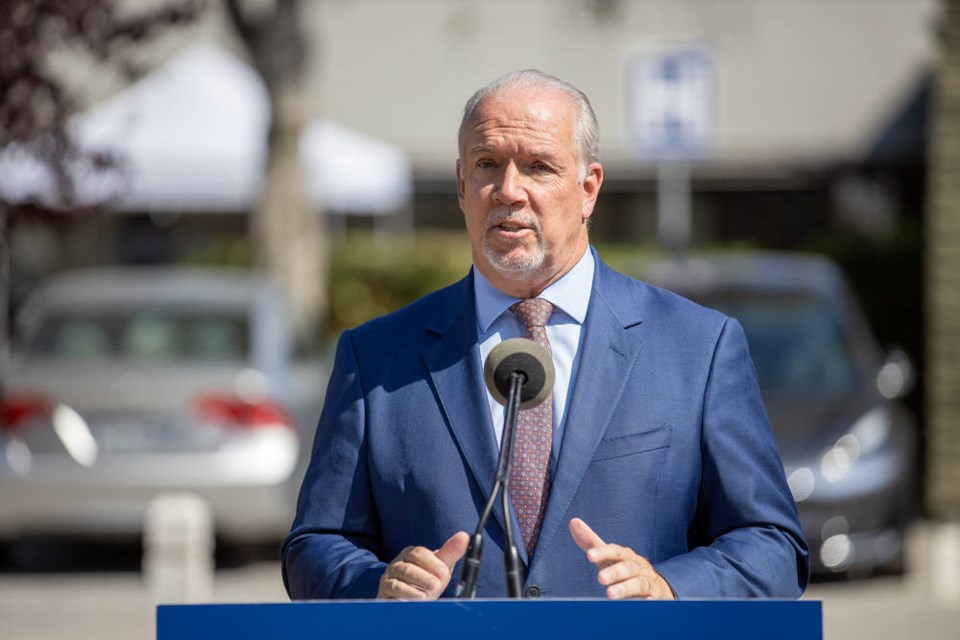The province is waiting on direction from the community following news that about 160 undocumented and unmarked graves have been found on the foreshore and on land once home to the Kuper Island residential school.
“We stand ready,” Premier John Horgan said Tuesday when asked about next steps following the discovery of the unmarked graves.
The Kuper Island Industrial School, which opened in 1889 and closed in 1975, was on what is now called Penelakut Island, near Chemainus.
Horgan reiterated that in 2017 all his ministers were given mandate letters to work on the 94 calls to action from the Truth and Reconciliation Commission.
“That does not change at all the tragedy of the revelations that we are hearing from communities right across B.C., whether it be in Ktunaxa territory in Kamloops or on Vancouver Island, which is my home,” he said.
In late May the Tk’emlúps te Secwépemc First Nation confirmed it used a ground-penetrating radar survey to find what it believes to be 215 unmarked graves at the former Kamloops Indian Residential School.
The band is expected to release a report of the findings into the discovery on Thursday.
The B.C. government allocated $12 million to support the ongoing investigative work at former residential schools and programs for community members re-traumatized by the recent findings. In June the federal government said it was ready to distribute $27 million allocated to assist Indigenous communities in locating and memorializing children who died at residential schools.
The province has been “working and waiting” for direction and guidance from host communities, Horgan said.
“It would be, I think, premature for us to do anything other than to await the direction of the communities that are going through not just the grieving of the revelations of these discoveries but generational trauma,” he said.
Nanaimo-North MLA Doug Routley is in daily contact with people in Penelakut and “representatives from Alert Bay, where there was a residential school, as well as in Port Alberni,” Horgan said.
The premier said he and Prime Minister Justin Trudeau spoke last week about the obligation of the provinces and federal government to act. “We are both very, very serious about making sure that our two orders of government are there for Indigenous communities when they call for assistance.”
On Tuesday, Trudeau told a news conference that the findings by the Penelakut Tribe deepen the pain of Indigenous people across the country.
He said the government is committed to telling the truth about what happened at residential schools.
The National Centre for Truth and Reconciliation at the University of Manitoba has records of 202 deaths of students at five residential schools on Vancouver Island, including 120 from the Kuper Island school. First Nations survivors and researchers say greater numbers of children died as a result of neglect, tuberculosis and meningitis, fires and injuries from beatings and rapes, and that those deaths were never recorded.
NDP leader Jagmeet Singh, in an interview during a visit to Victoria on Friday, called what happened to Indigenous children at residential schools beyond a cultural genocide and “absolutely an actual genocide, there’s no question about it.”
“Children went to these residential institutions and were killed,” he said.
The National Indian Residential School Crisis Line is available 24 hours a day at 1-866-925-4419 to help survivors of residential schools.
— With a file from The Canadian Press



